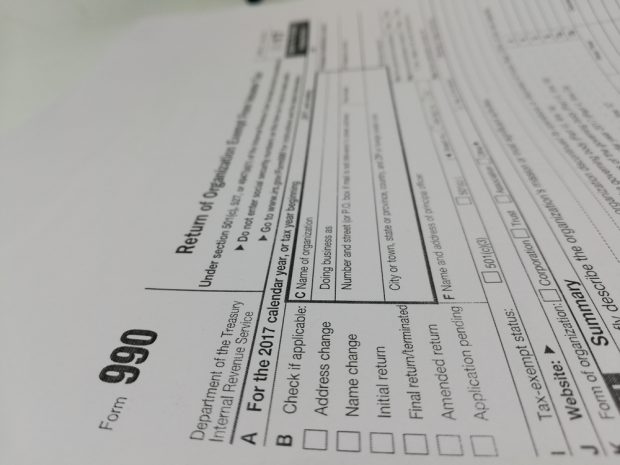
Requiring federal credit unions to file informational tax returns with the IRS will increase the regulatory burden the institutions face and would accomplish little, members of the credit union community said Tuesday.
“Although NAFCU and our members support transparency, requiring credit unions to file additional paperwork is unlikely to increase transparency in a material manner and would only serve to increase the already staggering regulatory burden imposed on credit unions,” NAFCU President/CEO B. Dan Berger said, in a letter to Acting IRS Commissioner David Kautter, on Tuesday.
Senate Finance Chairman Orrin Hatch(R-Utah) on Tuesday sent the IRS a letter raising the possibility of having federal credit unions—at least the largest ones—should be required to file Form 990. Among other things, that form would provide detailed information about executive compensation.
Hatch noted that the IRS has the authority to require the filing and would not need congressional authorization to do so.
Ryan Donovan, CUNA's chief advocacy officer, said Hatch has been conducting traditional oversight that committee chairmen conduct. He added, however, that requiring federal credit unions to file Form 990s would pose a significant regulatory burden on credit unions.
Hatch had raised the issue of compensation with NCUA Chairman J. Mark McWatters in his letter to the chairman. The GAO in 2006 recommended that federal credit unions be required to provide more information about compensation.
McWatters told Hatch that the NCUA examines compensation when evaluating credit unions and would raise a red flag if it affected the safety and soundness of credit unions.
In his letter to Kautter, Berger said he would oppose any plan to require greater transparency for only certain credit unions.
“We strongly oppose Senator Hatch's recommendation to bifurcate credit unions based on an arbitrary asset-size and add to their regulatory burden as such action would not be in the best interest of American consumers,” he said.
Berger added that federal credit unions already are highly regulated, adding that requiring credit unions to file IRS informational returns would simply increase their regulatory burden.
John McKechnie, senior partner at Total Spectrum, said he saw a connection with the timing of the Hatch letters and the fact that the American Bankers Association is holding its government relations summit in Washington this week.
“Chairman Hatch clearly wants to ratchet up the credit union tax issue, particularly as he prepares to retire, particularly as the ABA comes to town for their annual Capitol Hill fly-in,” he said.
And he added, “If Chairman Hatch is interested in increased transparency for financial institutions, I strongly suggest he ask IRS to obtain more information from Subchapter S banks, particularly how much income is being passed through to their shareholders. Consumers deserve to know about the tax-free haul that these wealthy individuals are receiving. Fair is fair.”
© 2025 ALM Global, LLC, All Rights Reserved. Request academic re-use from www.copyright.com. All other uses, submit a request to [email protected]. For more information visit Asset & Logo Licensing.






